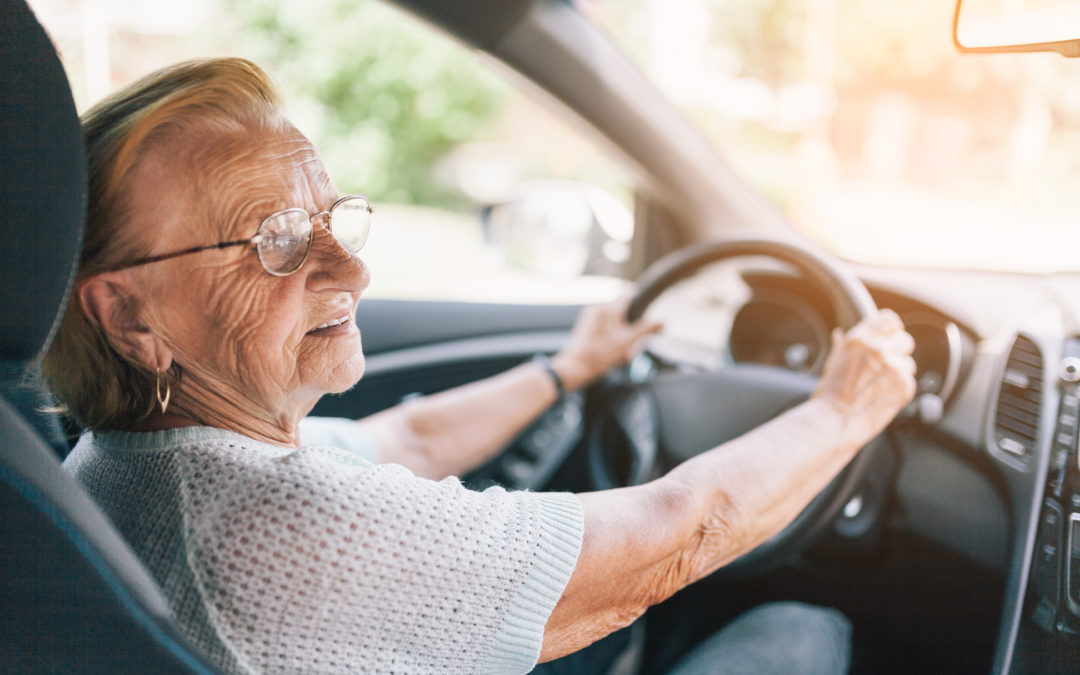If you have just been diagnosed with Dementia it can be difficult to understand what immediate and intermediate effects this may have on your living situation and quality of life. You likely have a lot of questions, one of them being about the rules and regulations of driving with Dementia.
Driving is a huge source of independence and convenience, but it is important to know when to stop or take precautions to keep yourself and others safe. Just because you have been diagnosed with Dementia it does not mean that you need to stop driving, in fact, in the UK 1 in 3 people with Dementia still drive safely.
At Bernash Care Home we understand the mental and physical importance of staying as independent as it is safe to be for as long as possible. This is why we want to make the rules around driving with Dementia clear for all.
The Stages of Dementia
In order to understand the rules around driving with dementia you will need to first understand the disease itself.
Dementia, a broad term for cognitive decline, can range from subtle changes to debilitating impairment. The causes of dementia vary, with Alzheimer’s being the most common, characterised by brain cell damage from protein buildup.
Dementia is medically ranked in stages that progress from no impairment to severe cognitive decline, necessitating increasing levels of care. Recognising symptoms early is vital for ensuring safety and well-being.
For most, it is perfectly safe to continue driving in the earliest stages of dementia, but it is important to stay vigilant for changes in your cognitive and motor performance.
How Does Dementia Affect Driving?
In the initial stages of Dementia, it is likely that your driving will not be impaired at all, but it is important to be vigilant about your faculties.
As Dementia progresses it can significantly impair driving abilities due to various cognitive and motor skill deficits:
- Memory problems may cause individuals to forget routes or how to operate vehicle controls.
- Reduced attention and concentration can lead to missed traffic signals or failure to notice hazards.
- Declines in judgement and decision-making abilities may result in risky manoeuvres or failure to respond appropriately to situations.
- Slower reaction times and impaired coordination increase the likelihood of accidents.
Unchecked Dementia poses serious safety risks on the road for both affected individuals and others, necessitating careful assessment, monitoring, and consideration of alternative transportation options.
Who Decides Whether You Can Keep Driving?
Your diagnosing doctor may have an opinion on whether it is safe for you to continue driving, if they believe it is unsafe for you to drive then it is important to follow this advice. It is also possible that they suggest you stop driving until more tests are done.
The DVLA (Driver and Vehicle Licensing Agency) will have the final say on whether it is safe and legal for you to continue driving.
What are the DVLA’s Rules About Driving With Dementia in England and Wales?
As soon as possible after your diagnosis, it is important to contact the DVLA to let them know to avoid facing a £1,000 fine or prosecution in the event of an accident. It is also imperative that you let your car insurance provider know.
If you wish to continue driving the DVLA will review your medical information and may require you to take part in an assessment. If they are happy with the results of this then a new licence will be issued. This licence will usually last for a year until the DVLA reevaluates the situation to ensure that you can keep driving safely. At this stage it is important to listen to the concerns of loved ones, if you are reaching the end of your licence and a loved one has expressed concern about your ability on the roads then it may be advisable to wait until your assessment to gauge your capabilities.
Adjusting to not Driving
If the DVLA has deemed you unfit to drive, or you’ve voluntarily surrendered your licence, adapting to life without a car can be challenging and frustrating. However, in many parts of the UK, public transport options make living without a car not only possible but also beneficial, offering savings and reduced stress. Additionally, you can often benefit from free or discounted transportation.
If you have supportive loved ones who can drive you at certain times, this transition can be an opportunity to reconnect and catch up, further easing the adjustment period.
Embracing alternatives can enhance independence and social engagement while mitigating the limitations imposed by not driving.
Ultimately, while the transition away from driving may present initial challenges, exploring and embracing alternative transportation options can lead to a more fulfilling and manageable lifestyle for those with Dementia.
As a residential care home specialising in Dementia care, we understand the impact of Dementia and the level of adjustment that is needed, and we are here to support every step of the way. If you’re looking for a care home that prioritises your independence as well as your safety then get in contact with our friendly team for more information on how we can help you.


